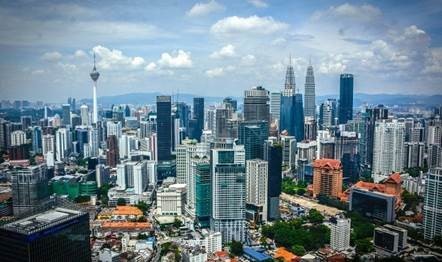
PETALING JAYA: The Malaysian economy is likely to grow at a rate of 4% to 5%, according to an economist from RAM Rating Services Bhd.
While this is below the 5% growth that the economy has managed to achieve over the year, it is nonetheless “already respectable” given the downsides Malaysia in facing, Woon Khai Jhek, the head of economic research at RAM Ratings, said.
He noted that Malaysia’s broad and diversified economy would support this growth, noting that the unemployment rate had already improved to 3.6% at the end of last year.
“(We) expect it to fall to 3.3% – which is our long-term full unemployment rate – by the end of 2023,” Woon added.
Geopolitical conflicts are also a concern for Woon. “There is great uncertainty as to where the global economy is heading. Further geopolitical escalation leaves big question marks on the impact on Asian economies,” he said.
Evelyn Devadason of the faculty of business and economics at Universiti Malaya said supply shocks that Malaysia faces are transmitted through backward participation in the global value chain.
“To shape our supply chains for the future we need to strengthen resilience, connectivity and sustainability. These are intangible drivers that are crucial today,” she said.
Rachel Chong, deputy director of research at Khazanah Research Institute (KRI), said that leveraging the opportunities provided by the digital economy would be critical moving forward.
“According to the department of statistics Malaysia, the digital economy has been on an upward trajectory since 2018. However while the macro level figures look good, we also notice the take-up for SMEs is much, much lower,” she said.
“KRI research shows the average SME finds it difficult to digitise. We have to ask what policies might be useful to help them with this process,” she added.
Moving forward, she said, regulating big tech to ensure that smaller businesses are able to compete on the value of their products and not the access to information, would allow for a more competitive and innovative digital ecosystem.
The ongoing trade war between the US and China is another flashpoint that can have detrimental long-term consequences on Malaysia’s growth.
Jayant Menon, senior fellow at ISEAS-Yusof Ishak Institute said economies like Malaysia are deeply embedded in global supply chains.
“If you take the electronic equipment sector, supply chains are very much centred in China. So whatever happens in China will greatly affect Malaysia, Thailand and Asean as a whole,” he said.
He added that a swift solution to the ongoing trade war must be found, as the costs are not simply borne by the parties involved.
“In the short-term it is imperative that Malaysia should not succumb to the growing trend of turning inwards through protectionist policies,” he added.
Source: https://www.freemalaysiatoday.com/category/business/2023/03/09/economy-expected-to-grow-4-to-5-this-year/

